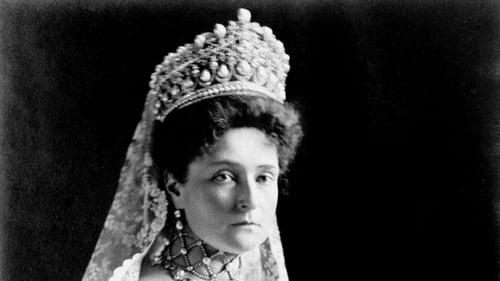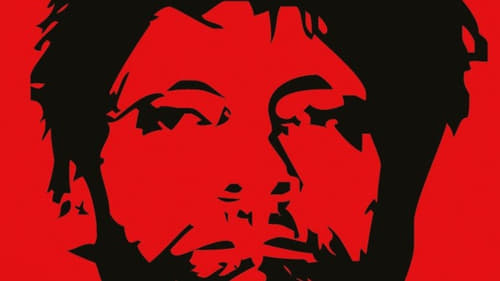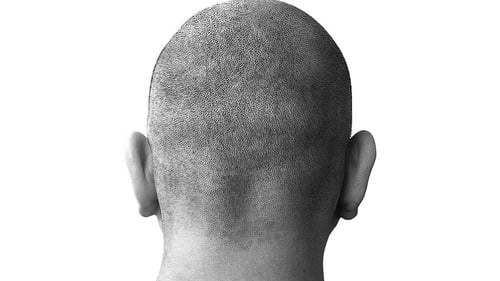
Editor
St. Petersburg, Russia, December 30th, 1916. Grigori Rasputin is assassinated. The story of the humble peasant who became the most influential adviser to czarina Alexandra Feodorovna, wife of the last czar, Nicholas II Romanov.

Editor
On a talkshow, actor and German TV ikon Joachim Fuchsberger recalls how the games for his show "Nur nicht nervös werden" (Don't Get Nervous), first broadcast on West German TV in 1960, were developed along the lines of American psychiatry. Asked "So how many crazy people watched you?", he responded: "A whole crazy, psychologically disturbed nation". Why were the Germans or to be more precise, the West Germans, a psychologically disturbed nation at that time? This is a film about cheerful and serious games, therapies for re-education and self-imposed re-education, as well as the history of the idea of permanent revolution. Those appearing include directors and producers of gameshows, psychiatrists, anthropologists, and the diversely paranoid.

Editor
15 years after our award-winning documentary WARRIOR OF LIGHT, the portrait of internationally acclaimed human rights activist Yvonne Bezerra de Mello and her work with street kids in Rio, ZONA NORTE is investigating the development and sustainability of the project. Over the years Yvonne has developed a new pedagogy that helps children who are traumatized by violence to overcome their experiences and the resulting learning problems. The children we portrayed 15 years ago are now young adults. They report from their lives in the most dangerous favela in the north of the city. They are the living proof that an alternative pedagogy is capable to break the vicious circle of poverty and violence.

Director

Editor
It's 1997 and Afghanistan is controlled by the Taliban. Seventeen-year-old Jalil Nazari finds refuge in Iran, where he ekes out an existence doing odd jobs. One day luck comes his way and he lands the starring role in an Iranian feature film.

Director

Editor

Director

Editor
More of a film essay - of the type pioneered by Orson Welles and Chris Marker - than a standard documentary, German filmmaker Lutz Dammbeck's The Net: The Unabomber, the LSD and the Internet begins with the typical format and structure of a nonfiction film, and a single subject (the life and times of mail bomber Ted Kaczynski). From that thematic springboard, Dammbeck branches out omnidirectionally, segueing into a series of thematic riffs and variants on such marginally-related subjects as: the history of cyberspace, terrorism, utopian ideals, LSD, the Central Intelligence Agency, and Cuckoo's Nest author Ken Kesey and his Merry Pranksters.

Editor
In fremder Erde (In Foreign Soil) documents the Muslim traditions of burial in Turkey and Germany, but above all, the paths the dead take to return to Anatolian soil.

Editor
A young man gets caught up in a conflict between his friends, a skinhead and a gay anarchist.

Editor
At the Vienna Art Academy in 1994, an unidentified person painted over 27 works by Austrian painter Arnulf Rainer. Rainer had become world-famous for his abstract art and, in particular, for his over-layering of photographs and overpainting of his own and other artists’ works. But who painted over the “overpainter”? Speculation rages: Did he attack his works himself? A year later, an unsigned letter surfaces claiming responsibility for the act directed against Rainer – and modern art in general – and accusing the artist of being complicit with “destructive modernism.” At the same time, Austria is shaken by a series of mail bombs by the Bajuwarian Liberation Army, in response to the supposed threat to Austria’s “German identity.” Are there connections between the overpainting event and the mail bombs? Or is this all just a game? A dream? Or perhaps a hallucination?

Editor
Jonas is in his mid-twenties, still lives with his parents and gets dumped by his girlfriend. He soon gets to know Lena, a tough young woman with ideals, and immediately falls in love with her. However, to prove he is worthy of her love, he has to pass an endurance test.

Editor
Dammbeck, himself an alumnus of the Leipzig Academy for Graphic and Book Design, presents the origins of the new German realism developed by the so-called Leipzig School, which took place in the context of socialist-realist dogma in the GDR before the Wall was built in 1961. After the Wall came down in 1989, what happened to the major Leipzig School painters Werner Tübke and Bernhard Heisig, who had been called “Dürer’s red heirs” by West German journalists in the 1970s? In the film, Tübke, Heisig, and former GDR officials who were involved with the cultural scene in Leipzig at the time talk about modernism, conformism, political pressure, party discipline, personal claims, and fading memory. The documentary paints an insightful, often critical picture of early East German art history.

Editor
The film explores what transformations in power and politics do to art, how much opportunism can be found in “pure” art and whether fascist symbols can ever regain their aesthetic innocence. The questions it addresses about the relationship between ethics and aesthetics make a valuable contribution to any discussion about art and power.

Editor
Despite seeing his film project HERCULES rejected by DEFA Studios in 1983-84, Dammbeck remained fascinated by the Hercules story. He started experimenting with different media combinations, using overpainting, photography, film clips, collage, painting, and movement. These experiments resulted in groundbreaking multimedia collaborations, as well as the film THE CAVE OF HERCULES, in which Dammbeck explores a series of questions inspired by this classical figure. Who was the legendary hero Hercules? Is there a new Hercules today? How are heroes created in a totalitarian society? What are the virtues of heroes? This multi-layered experimental film combines projections of collected film clips, quotations from “The Willful Child” by the Brothers Grimm, and “Hercules 2 or the Hydra” by Heiner Müller, as well as dance scenes with Eva Schmale that were performed – at Kampnagel in Hamburg – specifically for the film.

Editor
The scientist Udo Gierer is on the trail of Theodor Koch-Grünberg, the famous Amazon researcher at the beginning of our century. While traveling on a river steamboat, he meets and becomes friends with 14 year old José Junior. He takes José with him on a flight over the rain forest and tells the boy about the importance of the Amazon as the lung of the world.

Director












